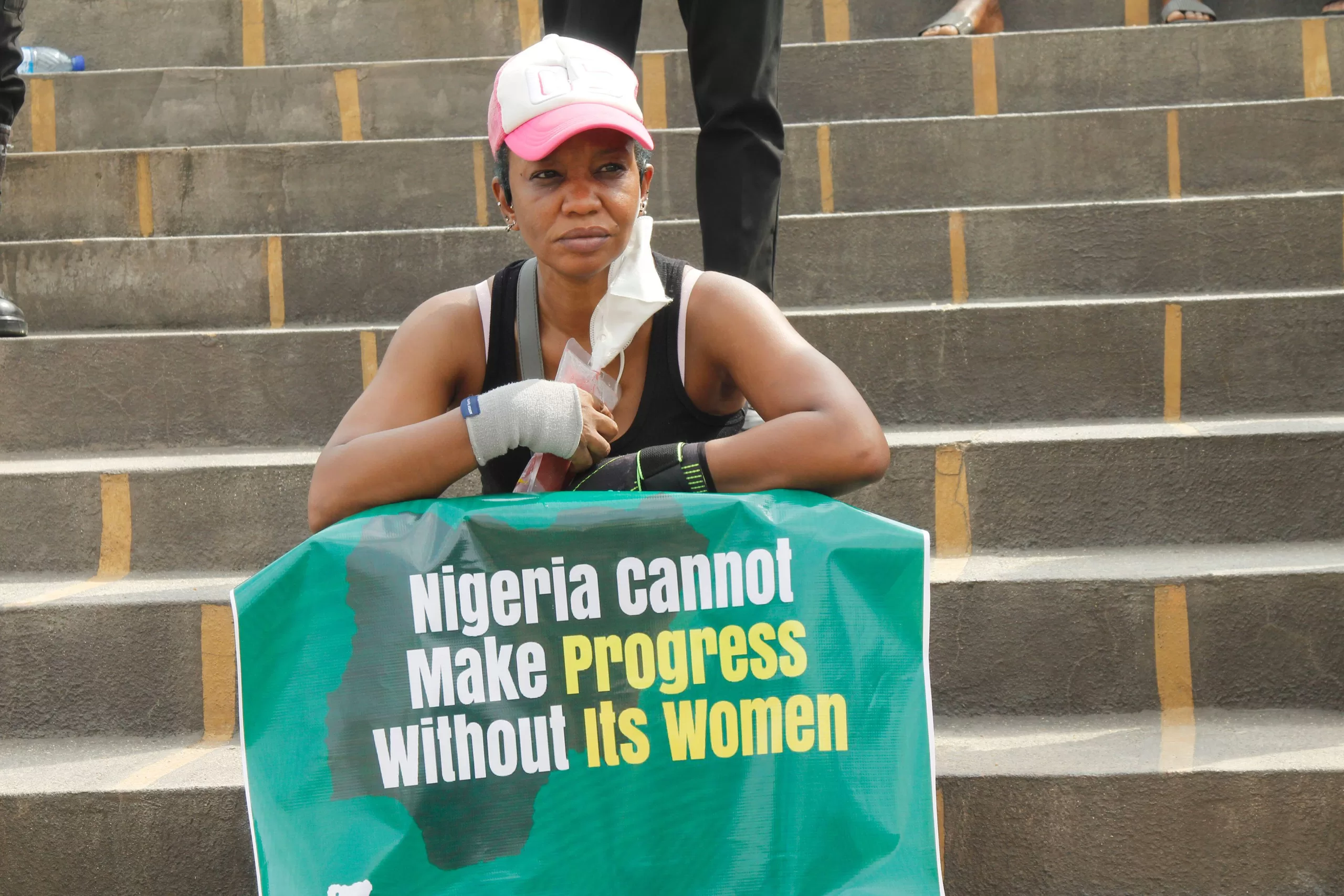Nigeria’s elections have always been rooted in the socio-political marginalisation of women. Political positions have been largely given to men and the women who participate get bullied out. This was demonstrated during the elections this year and the aftermath was visible in the National Assembly (NASS). Out of 110 Senate seats, women currently occupy three, and out of 360 House of Representatives seats, women occupy 14. Women hold 17 seats out of 470 total seats in NASS, down from 21 at the last election. Political parties received several submitted nominations for various political offices from women but only backed a few to run in the general elections. This jarring disparity between men and women in parliament is why Nigerian women suffer greatly.
Section 42 of Nigeria’s legislation provides citizens the right to freedom from discrimination on the grounds of sex, but the rest of the constitution is ridden with prejudiced laws that belittle the voices of women. Too many of them support the violence and segregation meted out against women and their voices can barely be heard over the clampdown of popular misogynistic tenets. It seems like an intentional ploy to keep Nigerian women on a leash.
In the constitution, for example, spousal rape is deemed impossible and men can beat their wives as long as it doesn’t result in ‘grievous’ bodily harm.
Another example is the police act, which stipulates that female police officers must apply for permission to get married and must receive approval before they continue with the union. This doesn’t apply to men. In 2012, a judge declared this section unconstitutional and illegal and yet it’s still a part of the regulation.
“It’s always men making policies for women. Policies about our bodies, policies about our movements, policies about our lives,” Nimisire Etomimo, a gender equality advocate and writer who joined in a 2022 protest, told Index.
The situation reflects deep-seated traditional and religious beliefs. Nigerian women are exhausted. They need only look at what happened last year to understand that the new government will bring about little to no change.
On 1 March 2022 Nigeria’s male-dominated National Assembly met to vote separately on 68 bills that would contribute to the constitutional amendment process. Five of the bills were about passing legislation to ensure affirmative action in political parties and other elective positions for women and revisiting harmful laws about them.
NASS was crammed with members of both the Senate and members of the House of Representatives that day. In the large conference room, there were audible murmurs between the men who looked to be making meaningful conversations. But ultimately their facial expressions gave away that their minds were made up before they even entered the room.
The bills were raised and every time one was called a resounding “No!” followed. There were only a handful of women in the room to the hundreds of men. The bills had no chance of a fair hearing and judgment.
“The gender bills are continuously getting thrown out because there are not enough women in the House,” Oluwadamilola Akintewe, a lawyer and speaker for UNICEF Nigeria, told me. “The bigger problem is the issue of patriarchy though. It strongly antagonizes the fight for equality in Nigeria because men think we’re trying to make them lesser than us by calling for equal treatment.”
Nigerian women later took matters into their own hands. After the bills were voted down they started a protest that went on for over a week. Women across the country took to the streets. But like the bills that were dismissed, these protests went unheard and unresponded to.
“They simply do not care about us,” Etomimo said. “The parliament is dominated by men who feel like they can do nothing about the staggering contrast between how men and women are represented in society.”
Three bills were later reported to be partially rescinded by a lower House in what now seems like a ploy to suppress the protests. There have been no updates about them till now.
“The National Assembly has been consistent about rejecting any notion of equality,” Ayisha Osori, lawyer, politician, and author of Love Does Not Win Elections, said.
“Speaker of the House of Representatives, Femi Gbajamiala, who is now Chief of Staff to the president, has been very vocal and clear in his position that any type of affirmative action for women is discriminatory against men,” she continued. “For him, women don’t need any level playing field. They just need to get their hands dirty.”
Passing the pro-equality bills into law would not completely relieve Nigerian women of their circumstances, but it would give women leverage over how matters regarding them are considered. In May, a bill seeking equal rights for men, women, and persons living with disabilities passed second reading at the Senate. There were oppositions to its framing as an equality bill and not an equity bill. Members of NASS said that it would need to be modified before it can be brought up again for passage.
“I think that supporting equality is not something that they [NASS] give a lot of thought. They don’t see the discrepancy or the discordance in saying they care about women’s rights. The excuse they give is religious and cultural,” Osori said.





